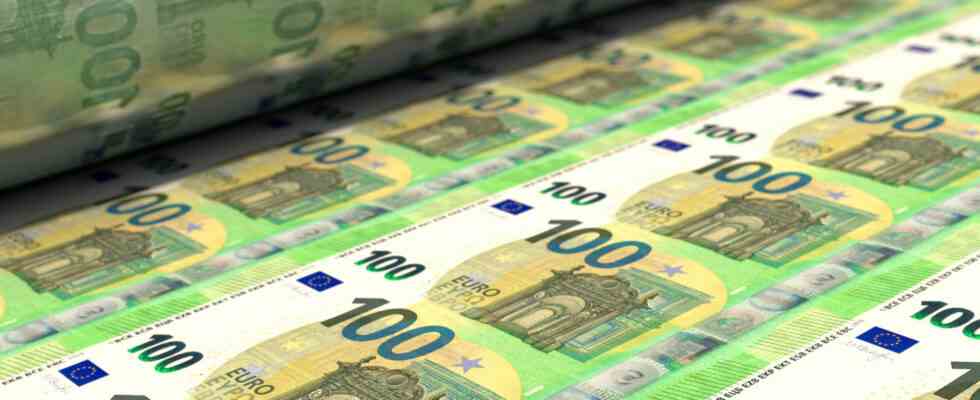Status: 06.10.2022 3:55 p.m
The traffic light government’s “double boom” is intended to cushion the consequences of the energy crisis. But does the debt brake in the Basic Law allow 200 billion more debt? And what does European law say?
By Maximilian Bauer, ARD legal department
The debt brake has been part of the Basic Law since 2009. So it is the constitution itself that limits the state from incurring debt. The basic rule is that the federal states are not allowed to take on any new debt at all. And for the federal government, new borrowing is limited to just 0.35 percent of gross domestic product (GDP). There are, however, exceptions to this rule.
Exceptions that are important for politics because they need financial leeway in serious crises. Whether the financial crisis, Corona or now Russia’s war against Ukraine – in the end it is the state that has to cushion the consequences for citizens and the economy, in case of doubt with rescue packages worth billions, which are financed by debt. The Bundestag had already overridden the debt brake in 2020 and 2021 due to the corona pandemic.
The energy crisis as an emergency situation
The 200 billion “double boom” against high gas and electricity prices is also said to be debt-financed. The Basic Law states that the debt brake does not apply “in the event of natural disasters or exceptional emergency situations that are beyond the control of the state”.
The current energy crisis is such an emergency situation, says Alexander Thiele, Professor of State Theory and Public Law at the BSP Business & Law School Berlin. “We are currently dealing with an extraordinary energy crisis caused by the Russian Federation’s war of aggression against Ukraine,” said Thiele. Without the financial intervention of the state, there was a risk of enormous social and economic upheaval. And it is precisely for such extreme situations that the Basic Law provides for extended borrowing. According to the constitutional law expert, the fact that the crisis was partly caused by a failed energy policy in recent years is irrelevant. It is now “to avert danger, not to assign blame.”
Does the “double boom” violate European law?
The 200 billion defense shield also raises questions from a European perspective. The EU commissioners for the internal market and the economy, Thierry Breton and Paolo Gentiloni, have criticized possible distortions of competition in a guest article for the “Frankfurter Allgemeine Zeitung”. If Germany supports its economy with billions, while other EU countries cannot afford it, European solidarity will be called into question in the crisis.
Many in Brussels are irritated by the rapid 200 billion euro advance from Berlin. And there are also legal question marks. The 200 billion for the gas price and electricity price brake are intended to relieve the German economy and are, legally speaking, state aid. Such subsidies are problematic from the point of view of the EU internal market. To ensure that competition between European companies is not distorted by state support, EU law says: The European Commission must examine and approve state aid.
The EU Commission will probably check
Matthias Goldmann, Professor of International Law at the EBS University for Economics and Law, estimates that the EU Commission will also examine the German 200 billion euro program. The EU law expert refers to Article 107 of the Treaty on the Functioning of the European Union (TFEU). Art. 107 TFEU does allow certain state aid for the economy. In the event of natural disasters, wars, but also “to remedy a significant disruption in the economic life of a member state”, every EU state can help its companies and, for example, stabilize energy prices.
According to Matthias Goldmann, it is completely open how the EU Commission would decide on the 200 billion euros in the German energy package. The Commission’s decision will certainly also depend on political issues. For example, how Germany behaves when it comes to the debt leeway of other member states according to the Maastricht criteria.

